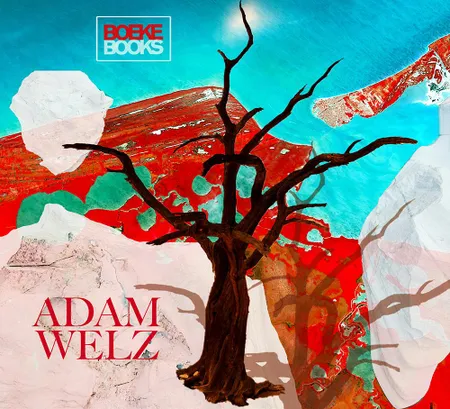WE live in the epoch of man, the most self-destructive species on earth. We believe the planet revolves around our own axis. But when you start looking past your small and worrying existence, it may surprise you that there are wonderful organisms living with you, on you and under your nails.
Man is alienated from the natural world. And we have become so removed from nature that we do not understand the effects of our ill-considered actions towards fellow species.
But man is part of an intricate embroidery. Our existence is tied to a rich variety of organisms and entwined with life threads that have not even been discovered yet. Our life hangs by a thread densely intertwined with these obscure organisms — should one of them die, we might as well.
In The End of Eden, Adam Welz, an ex-Pretorian, takes the reader back to the finer footprints on the lifeline of survivors. He focuses on the stories of fungi, bacteria, plants and animals that are reliant on each other. He explains the relationships between species and how they change due to the disturbed climate, leading to migration and the spread of infectious diseases.
It is amazing to realise that everything on earth is interrelated: every living cell came into existence when another living cell divided. The ancestry of every cell alive today can be traced back to the origin of life — one unbroken lifeline of survivors stems from one single-celled organism that divided billions of years ago.
Lees hierdie artikel in Afrikaans:
Can of soup
The climate crisis — another crisis within a sphere of so many — is sometimes hard to fathom. And dwelling on the threats posed by floods, wildfires, suffocating heat and plastic straws may not be the most effective way to deal with it. Another can of soup against a painting isn't going to fix this. The suffocating pressure on the chest when one thinks of earth-warming is exactly as depressing as it feels. In the past five years, the issue of climate crisis has been burning more and more urgently. The voices and reproaches are becoming more menacing. It is time for the peculiar nature of global warming to really register in people's consciousness.
Welz puts the climate crisis in perspective. He lays a clear scientific foundation for what is happening, without placing too much emphasis on the culprit. He believes the term climate change is misleading because it implies that the crisis is reversible. According to Welz, man's overexploitation of natural resources has already caused irreparable damage. So, he prefers the term climate breakdown: disintegration that will lead to annihilation, due to human-driven destruction — or global weirding. This term means climate change will lead to extreme weather events becoming more intense. The scientific consensus is irrefutable that climate change is happening and that it is caused by humans.
In the epoch of man, the most dominant animal species on Earth, the focus is frequently placed solely on the climate crisis and disastrous economic and political scenarios are sketched. Welz approaches the planet's great predicament from a new angle. By interpreting the stories of the animal population most heavily threatened by the climate crisis, he takes the reader on a journey through places he has lived or visited — the Mojave Desert in the southwestern US, the forests of Puerto Rico and the southeastern parts of Australia. Welz offers the reader a digestible scientific foundation of the cause of the climate crisis and its effect on vulnerable species.
We are in a transitional phase to a post-Holocene epoch in which human impact on the planet will be directly responsible for the next major extinction. The previous extinctions, which have occurred five times in the last 540 million years, were the result of natural events. Man's ecological footprint is therefore equivalent to the geological forces of the earth.
For long enough, human historical consciousness has been mired in our own ignorance — trapped in the conceited frenzy of progress. While the book is by no means a walk in the park, it also inspires awe for other life forms through stories that bring us back into contact with our tangled bonds with other organisms.
Compassion
The realisation that we rely on algae for our existence is a respectful place to start reflecting on the planet's progress. What we are experiencing is strange and requires us to act more attentively and cohesively.
In the final chapter of The End of Eden, Welz refers to himself for the first time, his lifelong passion for animals and his desire to be the voice of wild species. As a teenager in Pretoria in the 1980s, he found the animal kingdom more fascinating than anything and escaped as soon as possible on trips that took him around the world to nurture his love for animals.
While it is easy to feel overwhelmed by the enormous pressures of global warming, solutions are still to be found. They include a new vocabulary and a fresh worldview — conceiving a different kind of life in which we begin to live in compassion with our fellow species. We underestimate the role of wildlife in combating the climate crisis. According to thinkers such as Donna Haraway and Tim Ingold, the distinction between the human body and the environment is fading. The post-Holocene epoch represents a move away from the Cartesian “I" towards a more planetary “we".
The existence of all of us is at stake. Read it. Don't read it. Or go to hell.
Who, what, where and how much?
The End of Eden by Adam Welz was published by Bloomsbury and costs R465 at Exclusive Books.
♦ VWB ♦
BE PART OF THE CONVERSATION: Go to the bottom of this page to share your opinion. We look forward to hearing from you.



To comment on this article, register (it's fast and free) or log in.
First read Vrye Weekblad's Comment Policy before commenting.